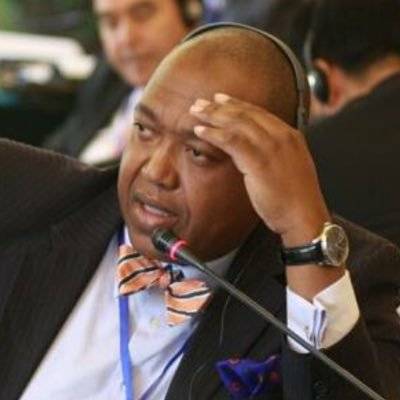Qatar’s foreign policy has been described by many as “maverick”. Unlike most countries in the region which have at best been regarded as client states, Qatar has demonstrated a confident and pragmatic foreign policy in its dealings with powerful Western governments, including the US.
When Qatar decided to support the Arab Spring anti-government protests across the region, it did so knowing that it was likely to invite a political backlash. It has been accused by most regional countries of using its financial resources and Doha-based Al Jazeera Media Network to promote instability in the region.
During the Arab Spring, Qatar moved away from its traditional foreign policy role as a diplomatic mediator to embrace change in the Middle East and North Africa in support of transitioning states. Regional actors viewed Qatar’s approach as overreaching, and scepticism about its motives increased. The first indication of such a backlash came in 2013.
OPINION: The US strategic shift in the Middle East
In a rare public spat that highlighted deep political divisions in the Gulf, Saudi Arabia, Bahrain, and the UAE withdrew their ambassadors from Qatar in protest at Doha’s alleged interference in their internal affairs. Political relations between Qatar and its neighbours were suspended in 2017. The Saudis, Emiratis, Bahrainis, and Egyptians cut all ties with Doha, and imposed a sea, land and air blockade, claiming that it supported “terrorism” and was too close to Iran.
![The end of the Gulf dispute - Cartoon [Sabaaneh/MiddleEastMonitor]](https://i0.wp.com/www.middleeastmonitor.com/wp-content/uploads/2021/01/m10-1-2021-1200x745.jpg?resize=920%2C571&ssl=1)
The end of the Gulf dispute with Qatar – Cartoon [Sabaaneh/MiddleEastMonitor]
Importantly, what continues to demonstrate Qatar’s pragmatic foreign policy has been its ability to maintain the balance of power in the region. It is host to the largest US military base in the region at Al Udeid Air Base. At the same time, a contingent of Taliban leaders has been in Qatar since the establishment of the movement’s embassy in Doha.
According to a local political activist, “This is perhaps the most complicated and puzzling nature of Qatar’s foreign policy. How do you explain that two warring parties could be hosted and continue to reside in a third country in relative harmony?” Qatar opened the embassy of the Islamic Emirate of Afghanistan in Doha in 2013 despite an adverse global attitude towards the Taliban. It funded the movement and began the process of its political integration into mainstream politics. This was happening at the height of hostilities between Taliban fighters and US troops in Afghanistan. It was a pragmatic long-term vision which changed Qatar’s status from a tiny state into a significant global power broker.
OPINION: The Middle East is in desperate need of geopolitical recalibration, maybe it’s underway
The recent announcement by US Secretary of State Anthony Blinken that Qatar is going to be a “protecting power” of the US in Afghanistan is undoubtedly a vote of confidence for the Gulf State’s foreign policy. According to Reuters, the agreement was signed at a US State Department ceremony.
Qatar will also provide all consular services on behalf of the US in Afghanistan. It is perhaps the closest relations that any country has ever established with America. This is indeed good news for the government in Doha as it adds the US to its close allies alongside — more pragmatism — Turkey, and Iran. When the blockade was imposed in 2017, it was Ankara and Tehran that came to the rescue, sending tons of food to Qatar overnight. Now its strategic position will enable Qatar to play an important political and diplomatic role as it looks beyond the region. Its new role in Afghanistan could just be the beginning.
The views expressed in this article belong to the author and do not necessarily reflect the editorial policy of Middle East Monitor.

![The national flag of Qatar [Matthew Ashton/AMA/Getty Images]](https://i0.wp.com/www.middleeastmonitor.com/wp-content/uploads/2021/11/GettyImages-1235878382-scaled-e1637156929117.jpg?fit=920%2C614&ssl=1)







